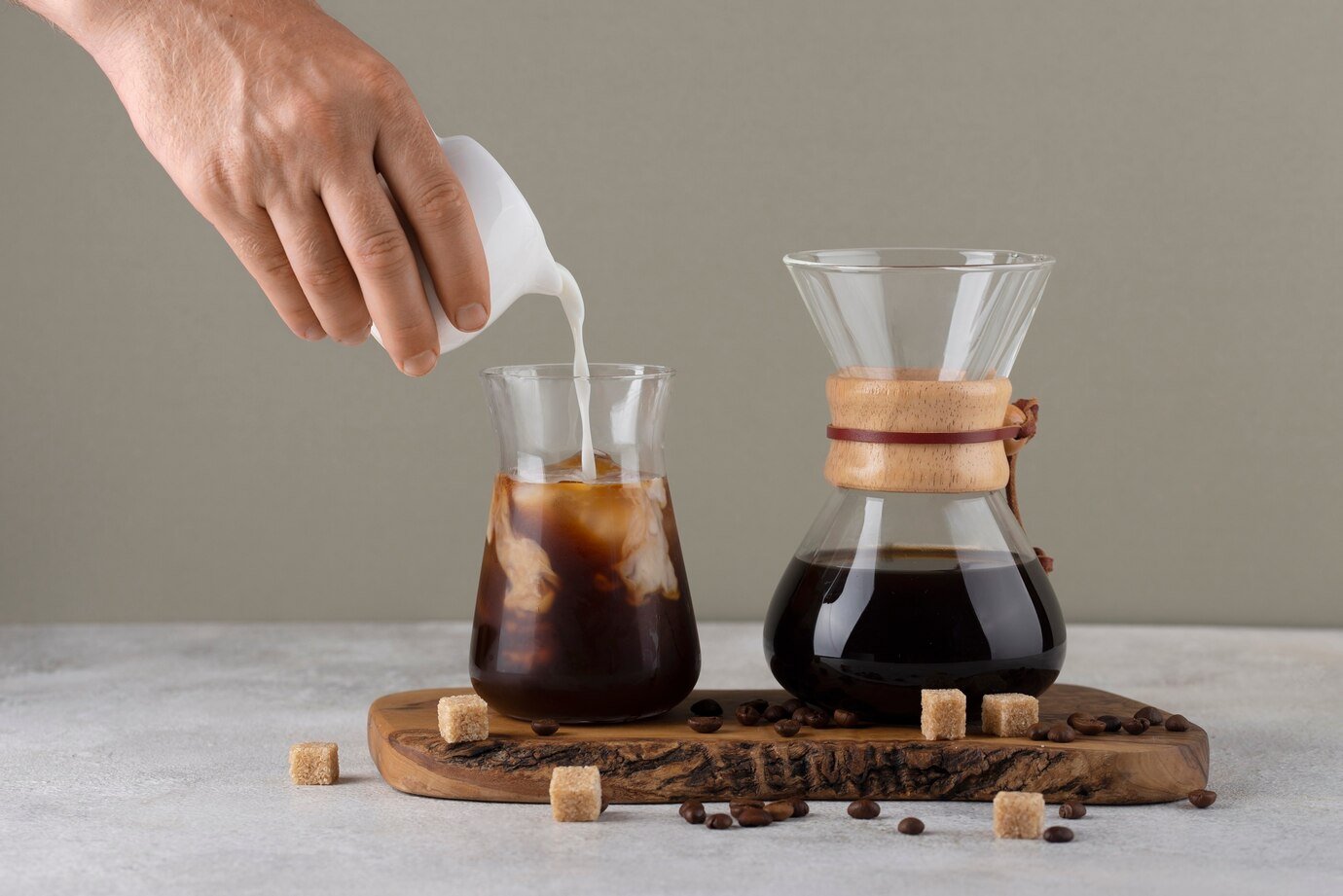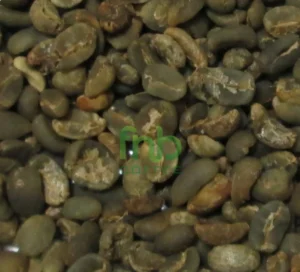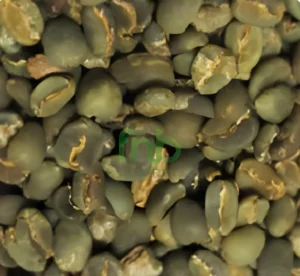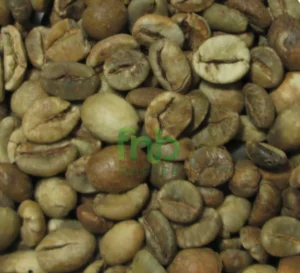For many coffee enthusiasts, the acidity of coffee is a topic of curiosity and concern. Some people enjoy the bright and tangy flavor profile that acidity can bring, while others avoid it due to digestive issues or personal preference. But what about decaf coffee? Is decaf coffee acidic?
In this article, FnB Coffee will bring you to dives deep into the subject, exploring what makes coffee acidic, how decaf coffee compares to regular coffee, and what you can do to enjoy a smoother cup.
What Makes Coffee Acidic?

Coffee acidity refers to the bright and tart flavors that give coffee its complexity. This acidity is primarily influenced by the type of coffee bean, the growing region, and the roasting process. Certain compounds, such as chlorogenic acids and quinic acids, are responsible for coffee’s acidic properties.
When coffee beans are roasted, these acids undergo chemical changes. Lighter roasts tend to retain more chlorogenic acids, resulting in a brighter and more acidic flavor profile. Darker roasts, on the other hand, have less acidity due to the breakdown of these compounds during prolonged roasting.
The Decaffeination Process and Its Impact on Acidity
Decaf coffee undergoes a process to remove most of the caffeine content from the beans. This process can influence the overall flavor, but is decaf coffee acidic as a result?
There are three common methods of decaffeination:
- Water Process: Beans are soaked in water to dissolve caffeine and other soluble compounds. The water is then filtered to remove caffeine before being reintroduced to the beans.
- Chemical Solvent Process: Solvents like ethyl acetate or methylene chloride are used to extract caffeine while preserving other compounds.
- Carbon Dioxide Process: CO2 is used under high pressure to remove caffeine without significantly altering the coffee’s flavor.
While these methods aim to maintain the coffee’s original flavor, they do not significantly reduce the acidity of the beans. However, some minor changes in the chemical composition during decaffeination can subtly impact the perceived acidity, answering the question, “is decaf coffee acidic?”
Read also: How Much Caffeine in Decaffeinated Coffee?
Comparing Acidity: Decaf Coffee vs. Regular Coffee
Many people assume that decaf coffee is less acidic than regular coffee, but this isn’t always the case. The acidity levels in decaf coffee largely depend on the type of beans and the roast profile rather than the caffeine content.
- Bean Variety: Arabica beans, known for their smoother flavor, generally have lower perceived acidity compared to Robusta beans.
- Growing Region: Coffee grown at higher altitudes tends to have brighter acidity, regardless of whether it is decaffeinated.
- Roast Level: Darker roasts, whether caffeinated or decaf, tend to have lower acidity because the roasting process breaks down acid compounds.
Managing Acidity in Decaf Coffee
If you love coffee but are sensitive to acidity, there are several ways to enjoy decaf coffee without the discomfort:
1. Choose Low-Acid Coffee Beans
Look for coffee beans specifically labeled as low-acid. These are often grown in regions with naturally lower acidity levels, such as Brazil or Sumatra. Brazil is known for its coffee beans that feature nutty and chocolatey notes, with lower acidity due to its lower-altitude farms and consistent climate.
Meanwhile, Sumatra produces coffee with earthy and herbal flavors, a result of its wet-hulling processing method and tropical environment, which naturally reduce the bean’s acidity.
2. Opt for Dark Roasts
Dark roasts tend to have a lower acidity level than lighter roasts. If you’re sensitive to acidity, opting for a dark roast decaf coffee could offer a smoother, less acidic experience.
The longer roasting process reduces the amount of acidic compounds in the coffee, resulting in a more mellow and full-bodied flavor.
3. Cold Brew Method
Brewing decaf coffee using the cold brew method can significantly reduce acidity, resulting in a mellower cup. This method involves steeping coffee grounds in cold water for an extended period, typically 12-24 hours.
The lack of heat minimizes the extraction of acidic compounds, such as chlorogenic acids, which are more soluble at higher temperatures. As a result, the coffee produced has a smoother, less tangy taste compared to traditional brewing methods like drip or espresso.
4. Add a Splash of Milk or Cream
Dairy can help neutralize acidity and create a smoother taste. This happens because milk contains proteins that bind with acidic compounds in the coffee, reducing their overall impact on the palate.
Additionally, the natural fats in milk create a creamy texture that balances the tangy notes, providing a richer and more harmonious flavor profile.
So, if you’ve been wondering, “Is decaf coffee acidic?” the answer largely depends on the beans, roast, and brewing method you choose—but with these tips, you can enjoy a smoother, less acidic cup every time.
Health Benefits of Decaf Coffee
Beyond acidity, decaf coffee offers several health benefits. It retains many of the antioxidants found in regular coffee, which can help combat inflammation and support overall health.
Additionally, decaf coffee is an excellent choice for individuals who want to limit caffeine intake due to sensitivities, pregnancy, or health conditions.
Research from UCLA Health also suggests that decaf coffee may help reduce the risk of certain diseases, including:
- Type 2 diabetes
- Liver disease
- Neurodegenerative disorders like Alzheimer’s and Parkinson’s
Finding High-Quality Decaf Coffee
Not all decaf coffee is created equal. To ensure a delightful cup, look for coffee brands that prioritize quality and sustainability. High-quality decaf coffee starts with premium beans and uses decaffeination methods that preserve the beans’ natural flavor profile.
For those who appreciate Indonesian coffee, the rich, bold flavors of beans grown in this region make them an excellent choice for decaf options. Indonesian coffee is known for its earthy and chocolatey notes, which often translate well in decaffeinated versions.
Experience Premium Coffee with FnB Coffee
If you’re searching for top-tier coffee, including decaf options, FnB Coffee is your go-to source. As a trusted provider of quality coffee beans from Indonesia, FnB Coffee has earned a global reputation, exporting to over 33 countries. Their commitment to excellence ensures you receive the best coffee experience, whether you prefer regular or decaf.
When it comes to decaf coffee, many coffee lovers often wonder, “Is decaf coffee acidic?” While the acidity levels of decaf coffee can vary depending on factors such as the type of bean and the brewing method, FnB Coffee offers a variety of options that cater to those who are sensitive to acidity.
Visit FnB Coffee today to explore their diverse selection of premium coffee beans, sourced directly from Indonesia’s finest coffee-growing regions. Click here to shop now and discover the perfect balance of flavor, quality, and sustainability in every cup.




























 Arabic
Arabic Chinese (Simplified)
Chinese (Simplified) Dutch
Dutch English
English French
French German
German Indonesian
Indonesian Italian
Italian Japanese
Japanese Portuguese
Portuguese Russian
Russian Spanish
Spanish